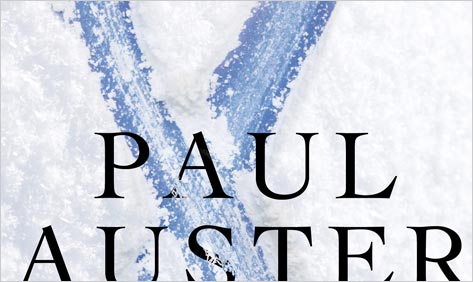Winter Journal

“Old age isn’t a battle,” Philip Roth wrote in his 2006 novel, Everyman. “Old age is a massacre.” Reading Winter Journal, you can feel Paul Auster anxiously coming around to Roth’s way of thinking: He’s troubled by the coming onslaught and searching for glimmers of optimism that might help him better bear it. He began writing this unusual, affecting memoir, his fourth, on the occasion of his sixty-fourth birthday, and it’s not structured so much as spouted, its string of personal anecdotes mainly united by two things: the way nearly every story becomes a study in the human body’s final decline, and the author’s use of the second person. You are suffering the panic attack; you are the one smoking too many cigarettes; you are burying a parent; you are staring death in the face. It’s as if Auster has called in backup for that massacre. If he’s gotta go, you’re coming with.
To experience Auster’s fixation on the body — and his way of staging that fixation as something you’re complicit in — is to realize that most memoirs don’t work this way. Not even the ones that focus on illness and death. Memoirs tend to be psychological studies of how one person’s mind worked through something. Winter Journal instead foregrounds the physical; on the first page Auster states his intention to catalog “what it has felt like to live inside this body from the first day you can remember being alive until this one.” With psychological interpretations stripped off, what’s left is a more visceral accounting, an argument that “your body has always known what your mind doesn’t know”; it’s Auster’s year of unmagical checkups.
That seems to spell trouble for the book, because any reasonable assessment reveals that, physically at least, Auster has led a relatively drama-free life. Much of his existence, he writes, has been defined by “day after day sitting at his desk for no other purpose than to explore the interior of his own head.” In one passage he lists the quotidian things he’s done with his body (“jumping up and down on hardwood floors, standing in showers, stepping into warm baths…” ). Elsewhere, he similarly lists things he’s done with his hands (“taking off your pants, tying your shoes, squirting shaving cream onto the tips of your fingers…” ). There are scars from childhood horseplay and bruises from grown-up car accidents; a sexual life that’s moved from “breaking the North American masturbation record every month throughout the years 1961 and 1962” to prostitutes to a case of the crabs to fatherhood. Little extraordinary, though.
Yet what becomes clearer, and in its closing pages more potent, is the way this physical self-scrutiny amplifies his emotional responses. A fuller understanding of death, Auster wants to say, demands an intimate understanding of the body — we can’t just think our way through this. Auster explores that idea most persuasively as he considers his mother’s death in 2002. In the days after, he drowns himself in drink, gathers with family, makes the necessary arrangements, and fields a call from a vicious, critical cousin. Then, underslept and overcaffeinated, he collapses: “You couldn’t grieve in the way people normally do,” he writes, “and so your body broke down and did the grieving for you.” Years later, after (in one of those pointed coincidences that seems exclusive to Auster novels), he stumbles across the 1950 noir D.O.A. on TV, he recognizes the ongoing wear on himself. “You aren’t tough anymore, are you?” Who’d dare say so, after taking such close measure of one’s self?
Still, it’s anybody’s guess why pondering the brutal physical reality of our inevitable decline requires an extended summary of D.O.A.‘s plot — let alone excerpts from his wife’s minutes from co-op board meetings. The digressiveness that marks lesser Auster novels like Oracle Night can sometimes make Winter Journal feel like an assemblage of barnacles searching for a hull to cling to. A remarkably poised woman spotted at the airport; flare-ups of anti-Semitism; peeing in the car as a child — this is all grist for some yet-to-be-determined mill. At such moments it perhaps helps to remember that, for all of Auster’s celebrated coolness, this book is a product of panic: “For some time now you have felt that you are disintegrating,” he writes. “[You] are rapidly turning into a debilitated wreck.” As a writer, Auster has only words as a defense against such degradations. Seen in this light, each digression is deeply relevant — he’s stacking up words as if to build a fort against the assault he knows is on its way.